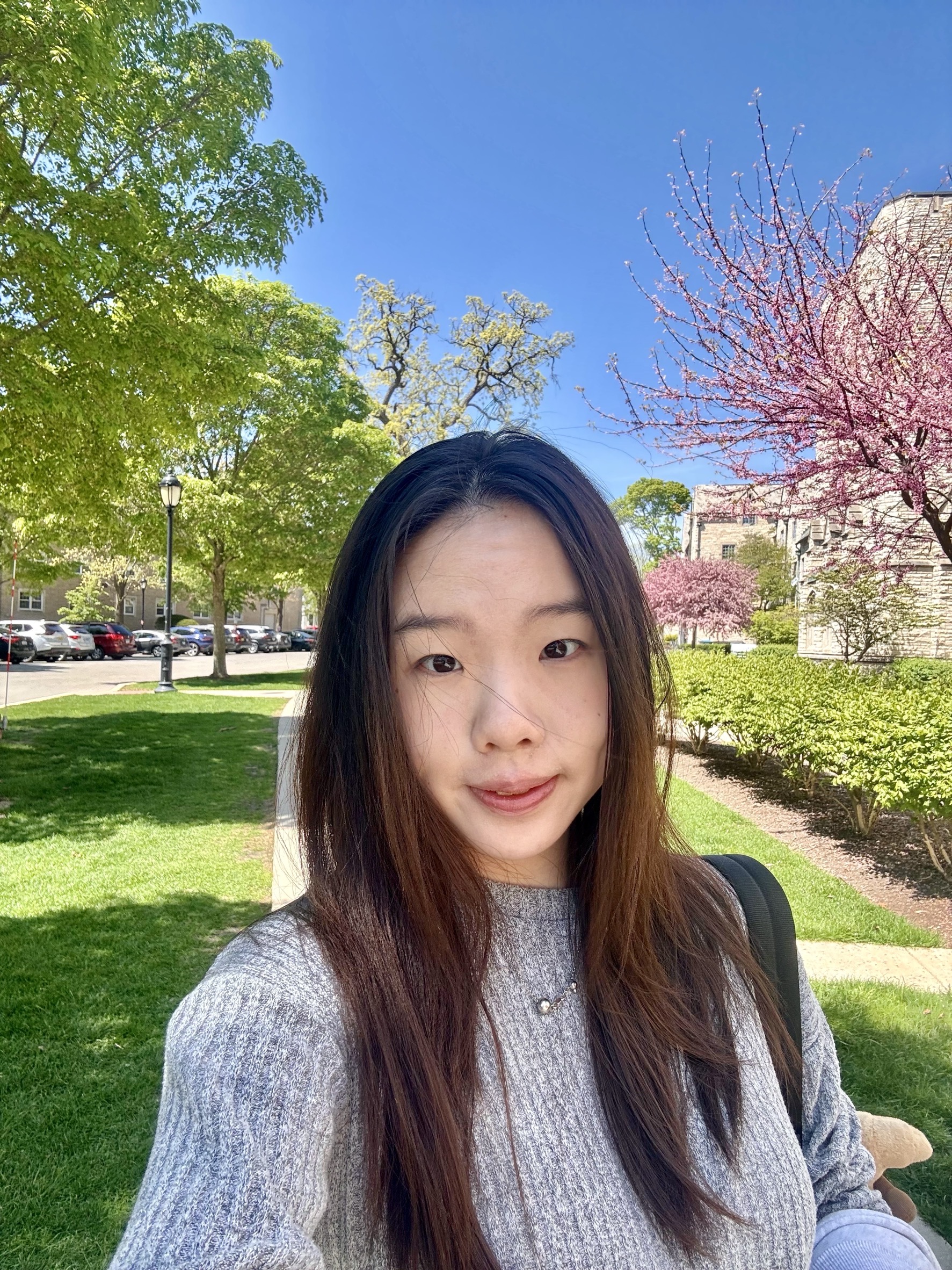The Paula M. Trienens Institute R&D Pillars
With a shared goal of decarbonization, the Trienens Institute R&D Pillars leverage Northwestern strengths to accelerate the transition to a clean energy future
Northwestern Student Discusses Finding her Place in the World

Northwestern junior Isabelle Sun has long been interested in sustainability as someone who grew up in multiple big cities where she observed their varied sustainability efforts. Her interest grew in high school when she participated in a program to develop city simulations and propose sustainability solutions. However, studying sustainability and energy wasn’t her original plan when she arrived at Northwestern. It was after she took a few environmental policy classes and learned about the Sustainability and Energy Undergraduate Certificate offered by the Paula M. Trienens Institute for Sustainability and Energy that she realized it was an ideal way to integrate her academic interests across both the social sciences and sciences and to develop skills that extend beyond the classroom and into the workforce and everyday life.
“I first learned about the certificate from the institute’s webpage, and then coincidently I realized I’d taken two of the electives for it. Then, I took both ISEN-210 and 230 spring quarter, and I found the coursework to be really interesting and meaningful. I realized it complements my interests in energy and sustainability,” Sun explained.
 The certificate provides students with an interdisciplinary approach o sustainability and energy studies. It is completed through seven courses: three foundational survey courses and four electives. Any undergraduate at Northwestern is eligible to pursue it.
The certificate provides students with an interdisciplinary approach o sustainability and energy studies. It is completed through seven courses: three foundational survey courses and four electives. Any undergraduate at Northwestern is eligible to pursue it.
“Growing up in Honolulu, Hong Kong, and Taiwan, and now living in Chicago, I’ve always found recycling methods fascinating because they often reflect a city’s commitment to sustainability. Each place I’ve lived in has approached waste management differently, and seeing these contrasts sparked my interest in the broader sustainability landscape,” said Sun. “For example, in Taiwan, recycling is deeply ingrained in daily life; people sort their waste meticulously. In Honolulu, while there are efforts to recycle, the island's geographic isolation makes waste management more challenging. Hong Kong, being a dense urban center, has historically struggled with landfill overuse, but recent government policies are pushing for more sustainable waste solutions. Meanwhile, in Chicago, I’ve noticed a gap between the availability of recycling infrastructure and actual participation rates, which raises questions about education and accessibility.”
Alongside the certificate, Sun is majoring in global history and minoring in business institutions. She finds that her sustainability studies often complement her history coursework. In her 2025 winter American Environmental History class, she was able to apply concepts from the certificate program; she recalls discussing the Anthropocene, which refers to the geological era characterized by the impact of human activities on the Earth's climate, ecosystems, and geological record in both classes. This subject overlap allows her to delve into sustainability concepts from both the sociological and scientific perspectives.
Additionally, Sun believes the program has taught her essential life skills, such as calculating carbon credits and measuring electricity savings. These skills have helped her make more sustainable and energy efficient choices in her daily life. “I never knew the methods of pursuing [more sustainable choices] before these classes,” Sun said. “The hands-on experience and relevance of what I’ve learned have helped me better understand many of the choices we face every day.”
Furthermore, Sun feels that the certificate is preparing her for the workforce. “My career goal is to go into a field like sustainability and energy, and I think these classes really opened my eyes to the actual things that people in this particular field do.”
One course that was of particular interest to her was NUvention: Energy and Sustainability, a course offered by the Trienens Institute in partnership with the Farley Center for Innovation and Entrepreneurship. “In this class, you actually work on a start-up and get to understand what a start-up in the energy space looks like.”
The certificate coursework has given Sun valuable experiences that help her develop skills applicable both in the classroom and the workforce.
She encourages anyone interested in sustainability to explore the certificate program.
“I think sustainability and energy is a growing field, and there are a lot of subjects within it that you can focus on. Having this exposure during your undergrad is really important given how many companies are going the ESG or sustainability track. It’s important to understand the history and evolution. Exposure to sustainability and energy will really help you in a career. It gives you a toolset and a credential that shows you understand the energy and sustainability space.”
At Northwestern, students have the opportunity to explore their diverse interests, no matter how broad. For those passionate about sustainability and energy, the Sustainability and Energy Undergraduate Certificate provides a valuable pathway to gaining interdisciplinary knowledge, hands-on experience, and a strong foundation in sustainability applicable for a career in any field